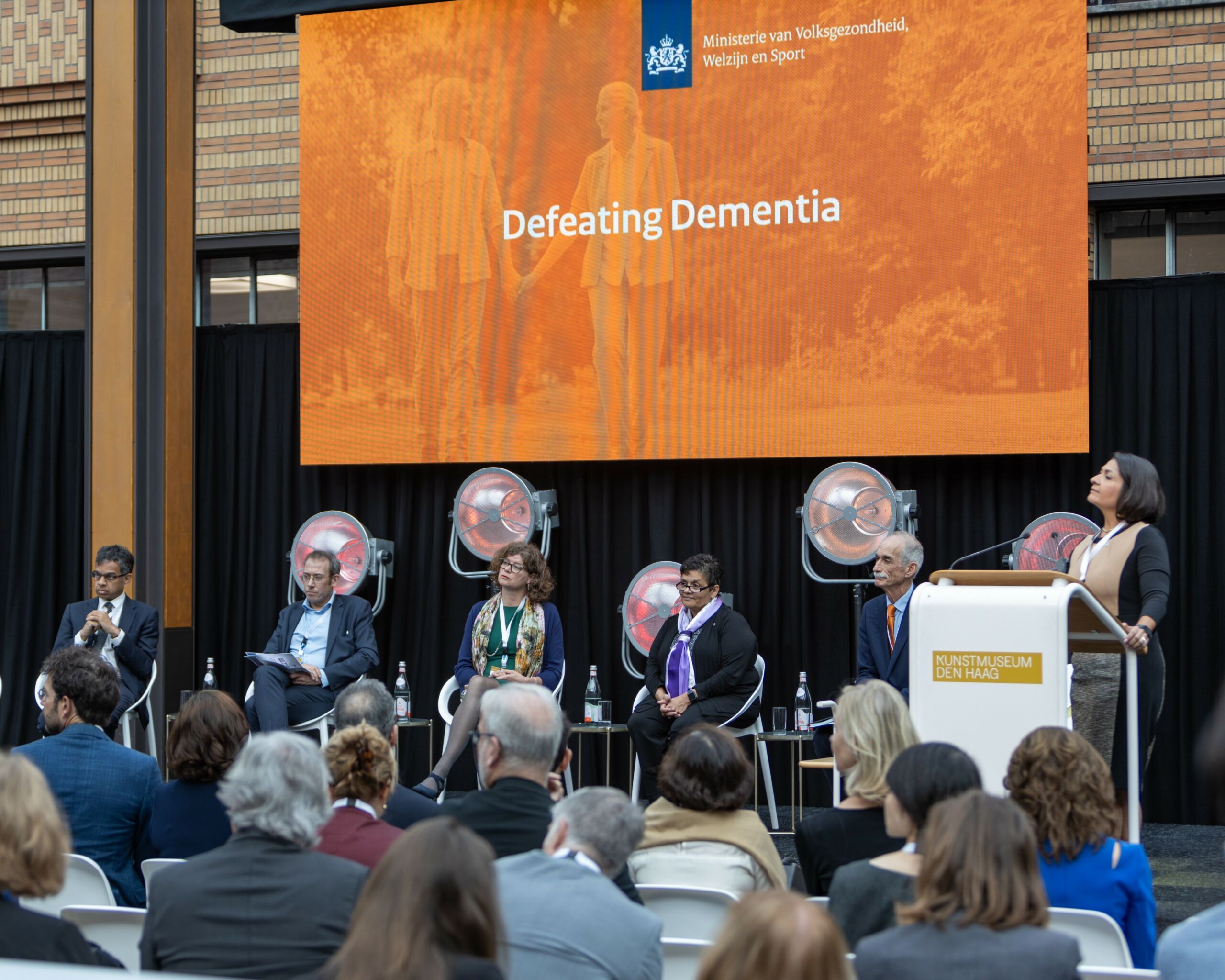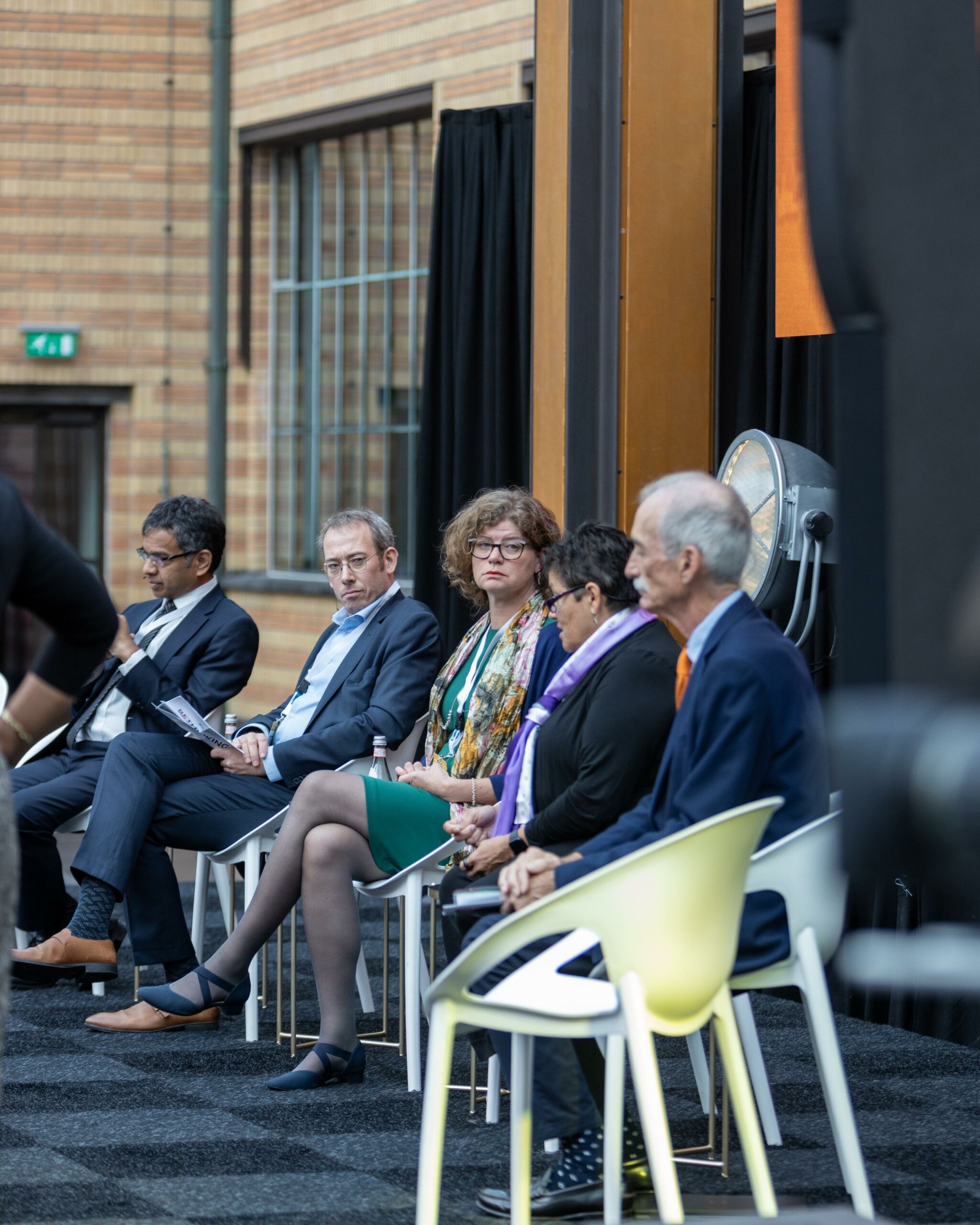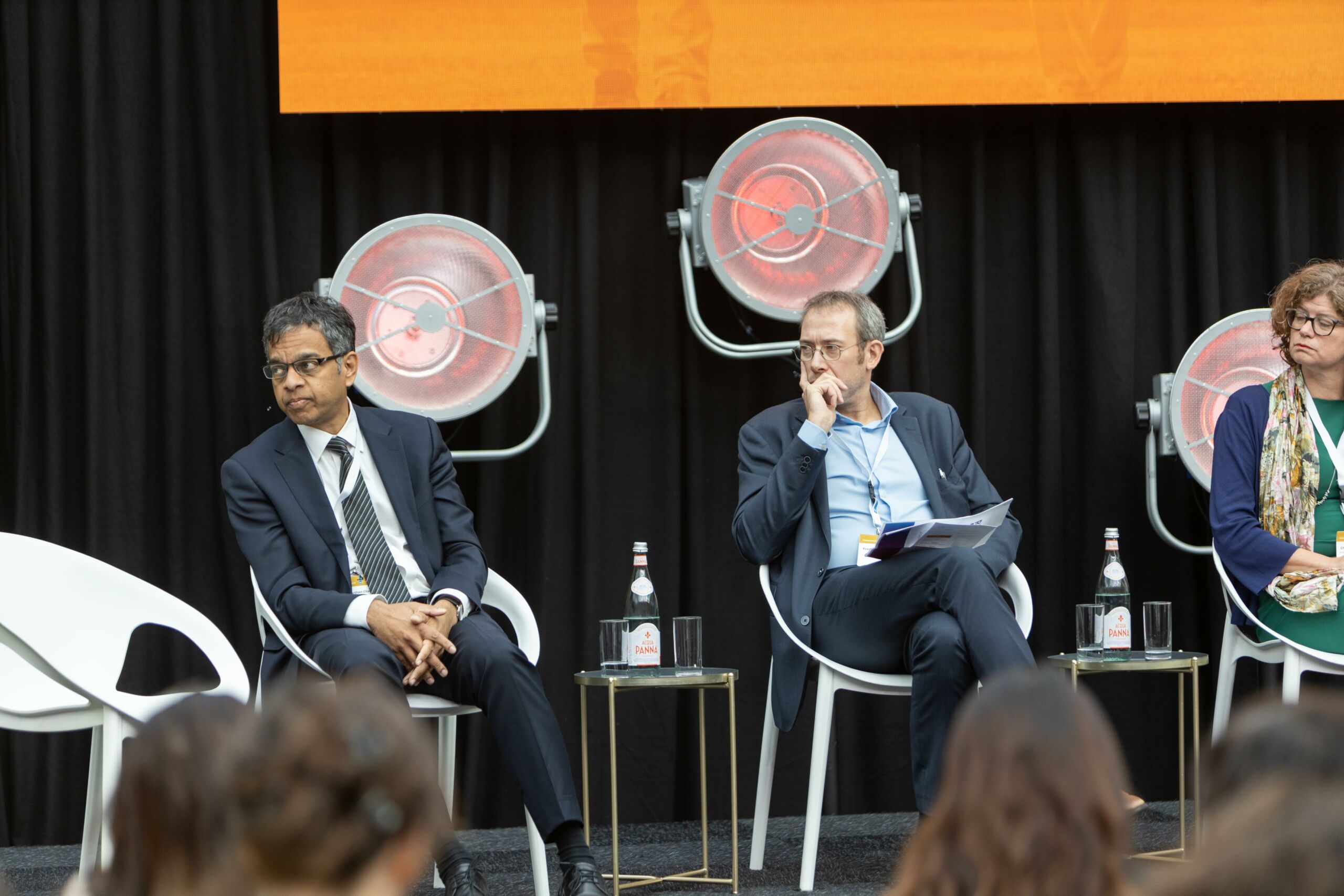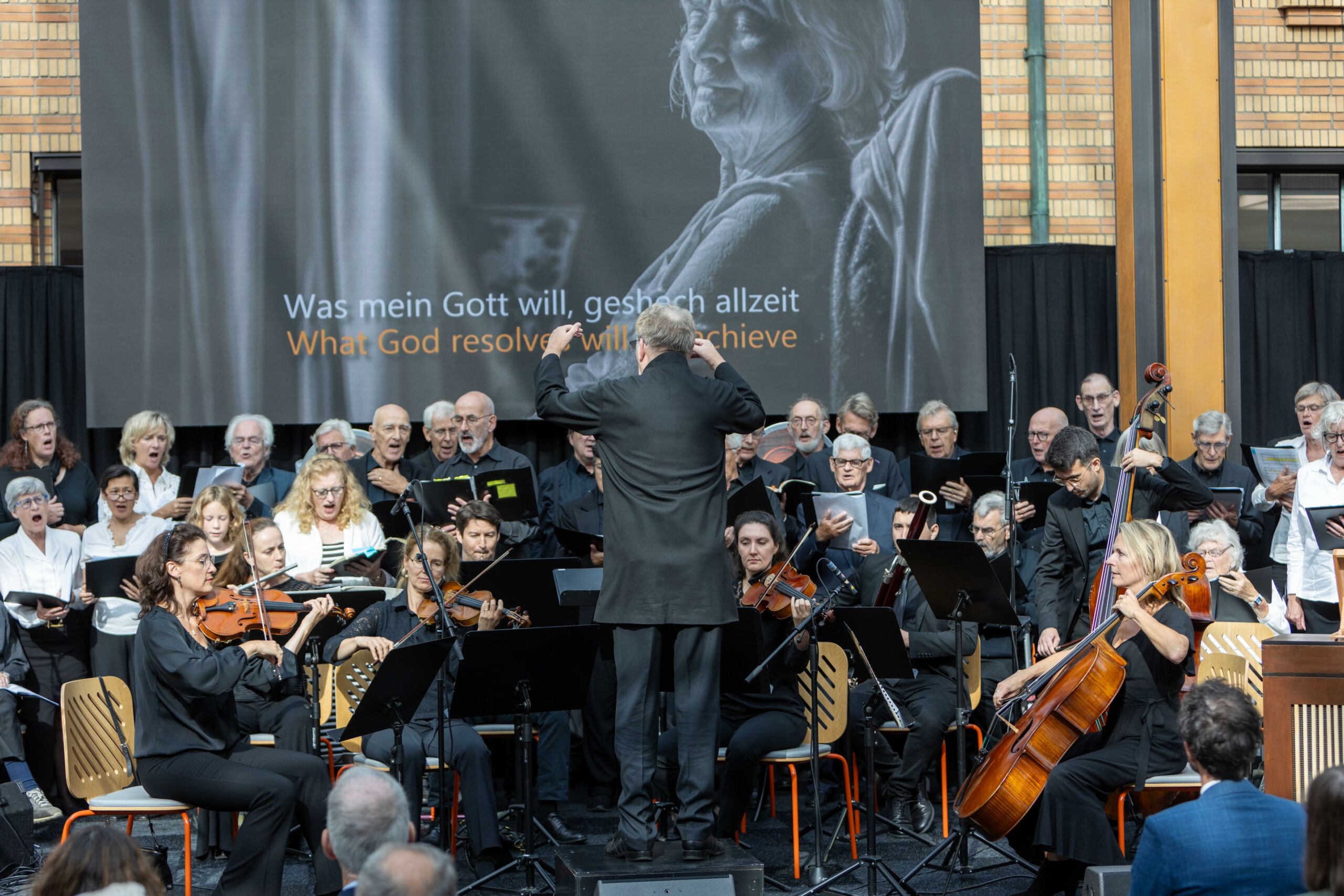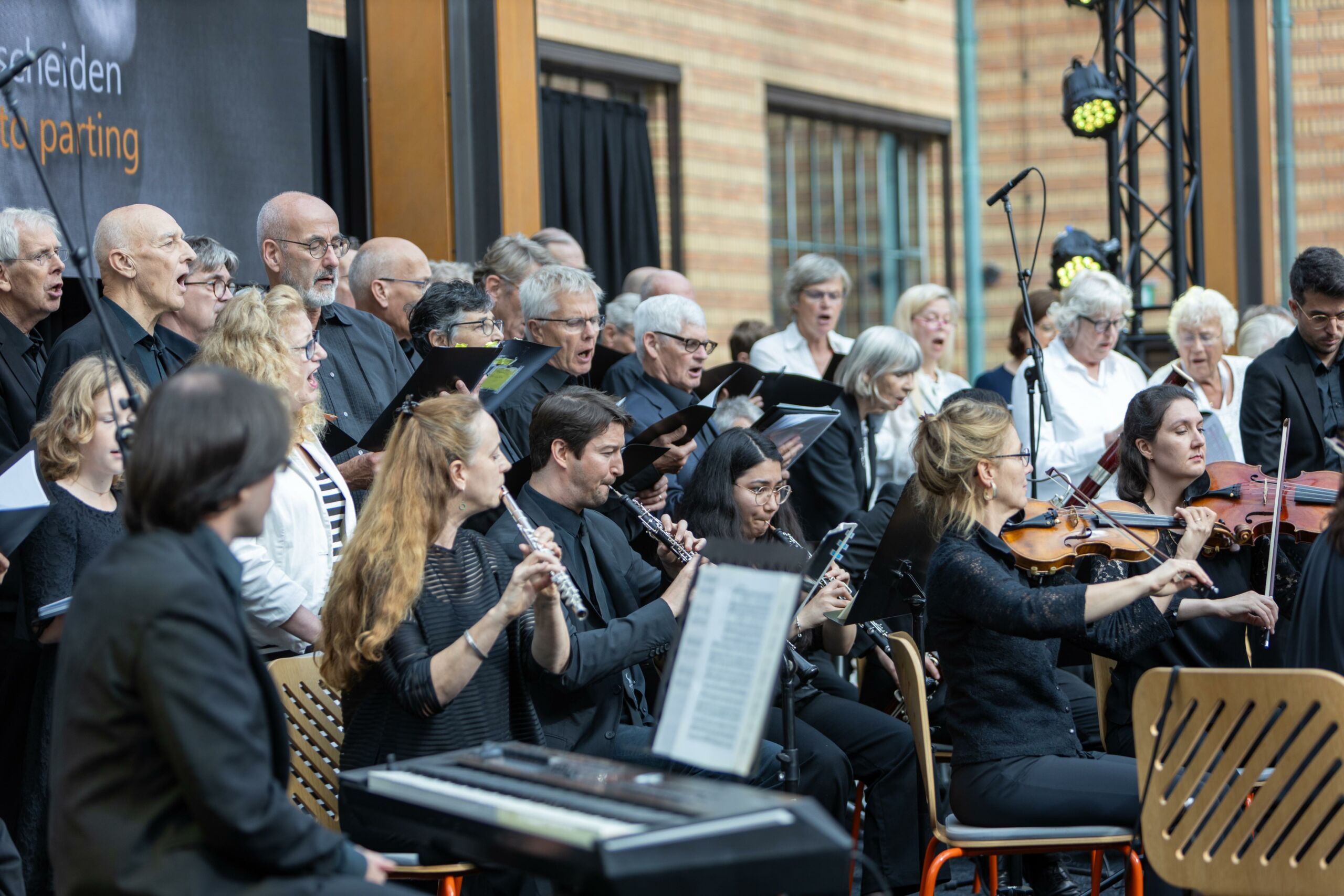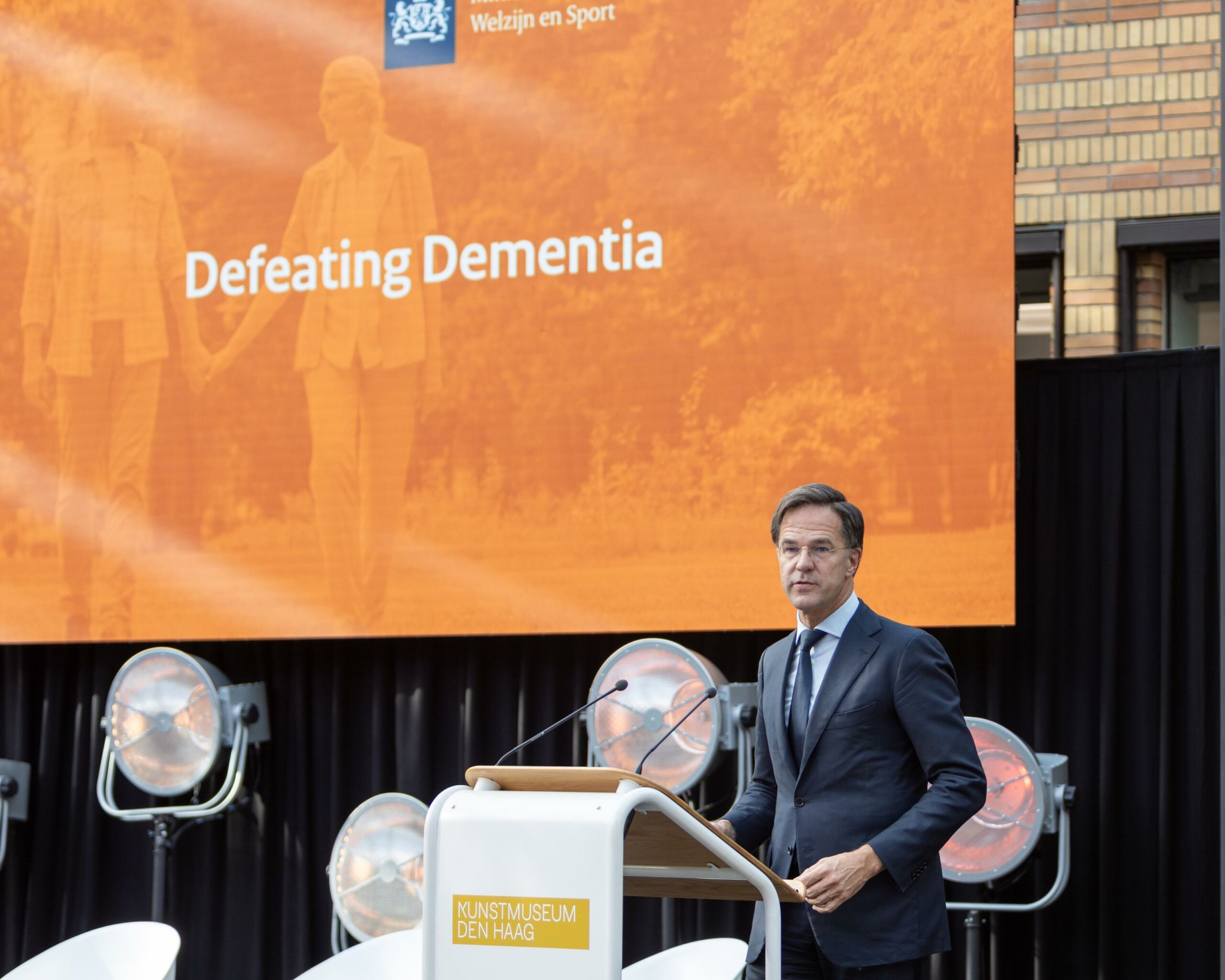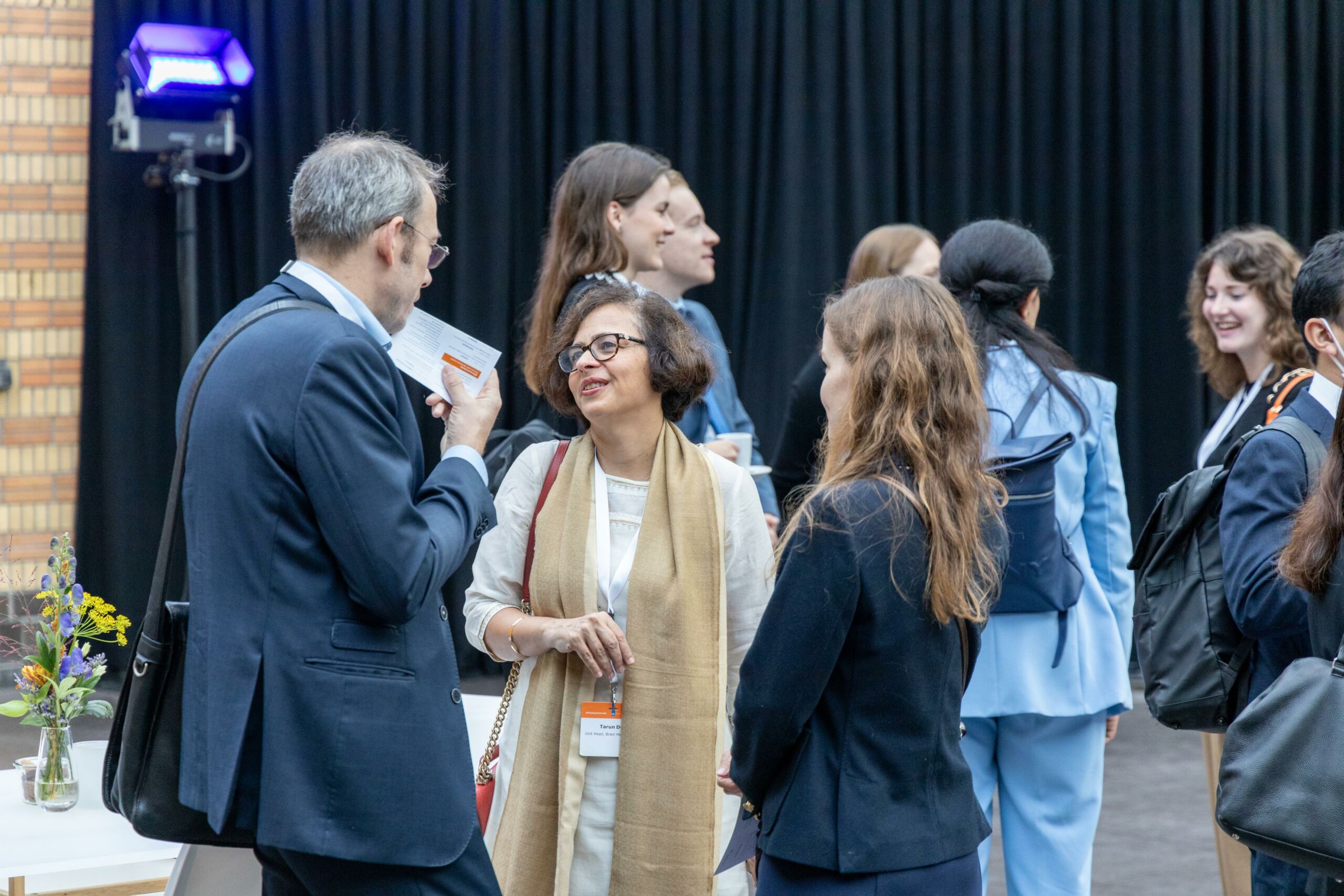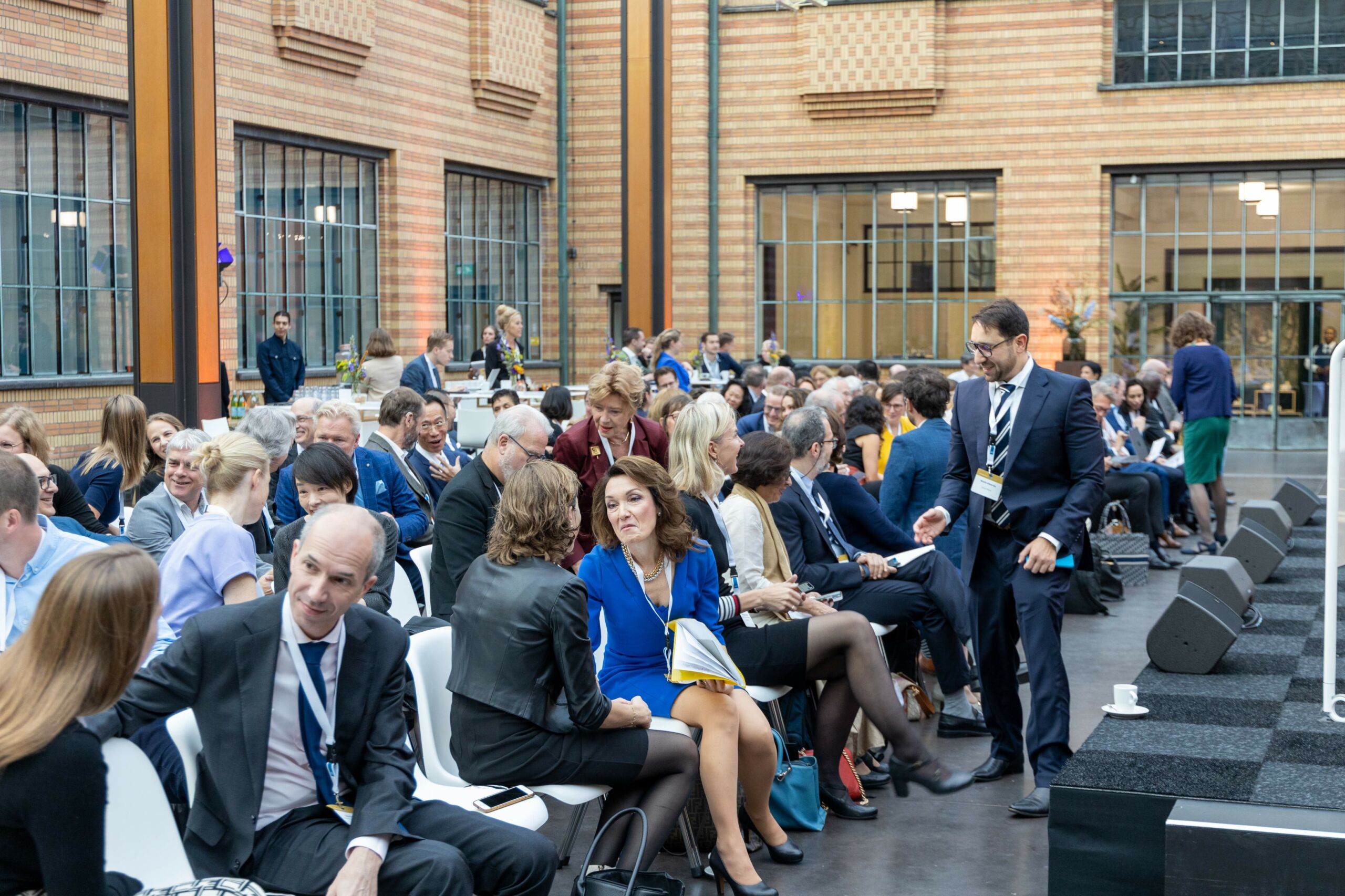EBC was honoured to be part of the Defeating Dementia Conference, bringing together leading experts in dementia, which took place on 2 October 2023 in The Hague. The event was organised by the Ministry of Health, Welfare and Sport of The Netherlands in collaboration with the World Dementia Council.
Representatives from G20 governments, international institutions, and a number of international leaders from across the dementia field, including industry, academia, care providers and civil society organisations were invited to participate in the conference. The meeting was opened by the Minister for Long Term Care Conny Helder and closed by the Prime Minister Mark Rutte. It included discussion sessions on the development of treatments and biomarkers, prevention, technology, and the aging society. The event also featured a concert of the Participation Choir, composed of people with and without dementia, singing highlights from St. Matthew Passion.
Globally, the prevalence of dementia is rapidly increasing. According to the World Health Organisation there are 55 million people currently living with dementia, a number forecast to rise to 139 million by 2050. The economic costs of dementia is also increasing exponentially, dementia costs the global economy over US$1.3 trillion. There is still no treatment that will stop the disease although the first disease modifying treatments have been approved. The WHO Member States are far away from reaching the 2025 goals of the Global Action Plan on Public Health Response to Dementia.
Diagnosing and treating Alzheimer’s and other dementias
In 2013 at the G8 Dementia Summit governments committed to the development of disease modifying treatments by 2025. For the first time since Alzheimer’s was first described as a clinical disease, more than one-hundred years ago, there are approved disease modifying treatments. At the same time there has been the rapid development, and increasing use at least in clinical trials, of now biomarkers, particularly blood based biomarkers in recent years. Earlier advances in molecular imaging already enable a much more accurate diagnosis, but blood biomarkers, and potentially digital biomarkers, enable health systems to diagnose, or at least detect, at lower cost, with accuracy and on scale. Dementia is a heterogenous condition and as well as making progress in Alzheimer’s disease we need treatments and diagnostics for other dementias. Treatments and new diagnosis presents significant system challenges in getting advances to patients, particularly when, in many countries, diagnosis rates are low and people are diagnosed late in the disease trajectory.
Frédéric Destrebecq, EBC Executive Director, took part in a panel discussion on diagnosing and treating Alzheimer’s and other dementias, highlighting the outcomes of the Rethinking Alzheimer’s disease project, coordinated by EBC. The project seeks to offer policy recommendations to make tangible changes with the objective to improve the lives of people living with Alzheimer’s disease across Europe.
We look forward to seeing the strong policy commitments expressed at the Conference turned into action, especially in the context of the EU-funded Coordination and Support Action (CSA) “Towards structuring brain health research in Europe” that EBC is part of. The CSA Brain Health consortium, gathering patient organisations, funding agencies, and key stakeholders from the brain ecosystem, will enable the strategic alignment of European research agendas, design the governance structure of the future European Partnership on Brain Health while ensuring geographical and academic representativity, and establish itself within the broader international brain research community. The project will pave the way towards the future European Partnership on Brain Health.
Photo credits: Jarno Robles



